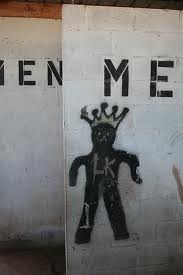According to a recent report by Fox Charlotte, a local hotel has given many residents of the area pause. The Charlotte Inn, which is located on Independence Boulevard in Charlotte, has been the scene of many violent and drug-related incidents. The police have been called to the Charlotte Inn several times recently.  Residents are beginning to consider moving to different areas of the city to avoid the potential dangers.
Residents are beginning to consider moving to different areas of the city to avoid the potential dangers.
One East Charlotte resident, Jason Van Buren, said that he liked the neighborhood and thought it was a good place to raise his family, but the Charlotte Inn, which is only steps away from his front door, has brought in some trouble to the neighborhood. According to Fox Charlotte, in the past year, the police have been involved in 40 incidents at the Charlotte Inn, and in June 2011, a man was brutally murdered at the Inn.
Van Buren and others in the neighborhood believe that the City of Charlotte could be putting in more of an effort to curb the problems at the Charlotte Inn. The Chair of the Eastside Political Action Committee, Ed Garber, believes that the police have not done enough about the crime at the Charlotte Inn. He believes that the police are overwhelmed with other things and if the city will not make the area more viable, then the police have no reason to care.
 Charlotte Criminal Lawyer Blog
Charlotte Criminal Lawyer Blog


 After turning himself in to the sheriff, he was released on a $25,000 unsecured bond. Mayfield and his attorney vehemently deny all the charges against him. According to his attorney, Robert Freeman, Mayfield would be entering a plea of “not guilty.”
After turning himself in to the sheriff, he was released on a $25,000 unsecured bond. Mayfield and his attorney vehemently deny all the charges against him. According to his attorney, Robert Freeman, Mayfield would be entering a plea of “not guilty.” The intruder, 23-year-old Marlon Barber, barged into Jarvis’s home and pointed the gun at him. Barber wanted money and started brutally beating Jarvis over the head with the butt of the gun.
The intruder, 23-year-old Marlon Barber, barged into Jarvis’s home and pointed the gun at him. Barber wanted money and started brutally beating Jarvis over the head with the butt of the gun. On Monday, January 30, 2012, arguments began in a Racial Justice Act case, a case in which a death row inmate is challenging his death sentence by attempting to demonstrate the presence of racial bias as a factor is his sentencing. According to a recent report by the
On Monday, January 30, 2012, arguments began in a Racial Justice Act case, a case in which a death row inmate is challenging his death sentence by attempting to demonstrate the presence of racial bias as a factor is his sentencing. According to a recent report by the  According to a recent report on
According to a recent report on  In a story that hits close to home at
In a story that hits close to home at  According to a recent report by
According to a recent report by  In a recent interview with WSOC channel 9 news interview,
In a recent interview with WSOC channel 9 news interview,  Mecklenburg County defendants’ use of the “Moorish Nation” defense is interfering with District Attorney Andrew Murray’s new policy of taking more cases to trial. By invoking this “defense,” defendants force assistant district attorneys to deal with frivolous motions that delay the case. However, the real losers with this defense are those who try to use it, who, according to
Mecklenburg County defendants’ use of the “Moorish Nation” defense is interfering with District Attorney Andrew Murray’s new policy of taking more cases to trial. By invoking this “defense,” defendants force assistant district attorneys to deal with frivolous motions that delay the case. However, the real losers with this defense are those who try to use it, who, according to